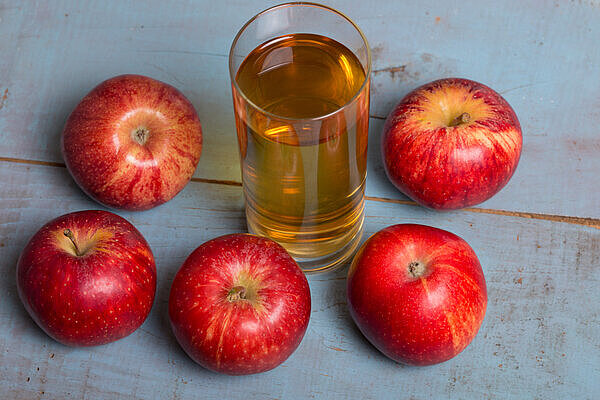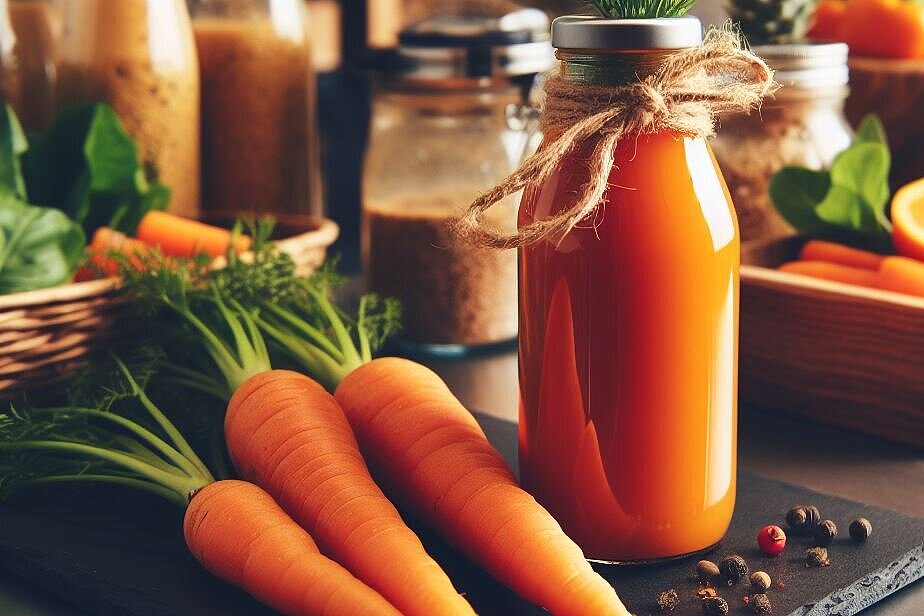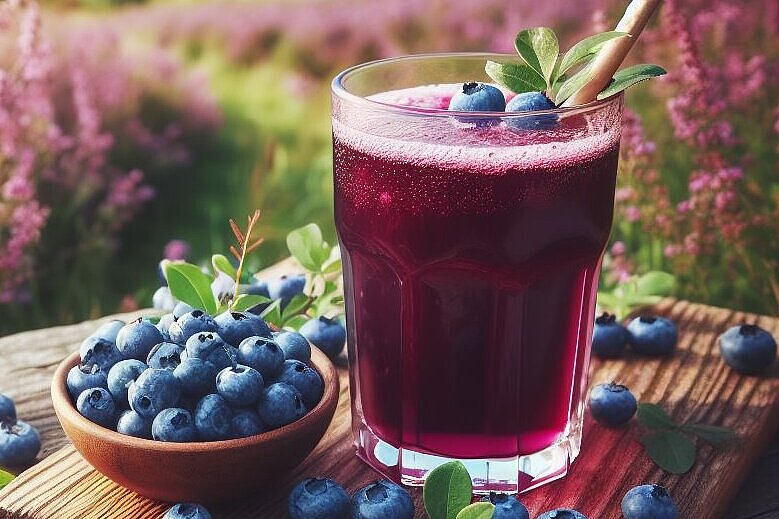Pear juice

What is pear juice?
Pear juice is a fruit juice made from pears. Pears are a type of fruit that belongs to the pome family and originally comes from Asia. There are many different varieties of pears, which differ in shape, color, taste and ripening time. Most pears are sweet and juicy and have a soft skin.
To make pear juice, ripe pears are washed, cored and chopped. The juice is then pressed or extracted from the pulp. The juice can be drunk pure or diluted with water. Sometimes other ingredients such as sugar, honey, lemon juice or spices are added to improve the taste.
What are the benefits of pear juice for dogs?
Pear juice has several benefits for dogs when given in moderation. Pear juice contains many vitamins, minerals and antioxidants that are important for dogs' health. For example, pear juice contains:
- Vitamin C: This vitamin strengthens the immune system and protects against infections.
- Vitamin A: This vitamin promotes vision and skin health.
- Vitamin B: These vitamins support the nervous system and metabolism.
- Folic acid: This acid is important for the formation of red blood cells.
- Potassium: This mineral regulates blood pressure and fluid balance.
- Iron: This mineral is important for the transportation of oxygen in the blood.
- Calcium: This mineral strengthens bones and teeth.
- Zinc: This mineral promotes wound healing and the immune system.
- Magnesium: This mineral relaxes the muscles and nerves.
- Iodine: This mineral supports thyroid function.
Pear juice also contains fiber, which stimulates digestion and can prevent constipation. Pear juice also has a diuretic effect, which can be helpful for dogs with kidney problems. Pear juice can also reduce inflammation and acidity in the stomach, which is ideal for sensitive dog stomachs.
What are the disadvantages of pear juice for dogs?
Pear juice also has some disadvantages for dogs if it is given in excessive quantities. Pear juice contains a lot of fructose, which can lead to obesity, diabetes or tooth decay. In addition, too much fructose can lead to diarrhea or vomiting as it irritates the gastrointestinal tract.
Too much pear juice can also lead to fluid loss, as it has a dehydrating effect. This can lead to dehydration or electrolyte imbalances, which can be dangerous for dogs. You should therefore always make sure that your dog drinks enough water.
You should also make sure that the pear juice does not contain any additives such as sugar, honey, lemon juice or spices, which can be harmful or toxic to dogs. For example, lemon juice can attack tooth enamel or cause stomach ache. Spices such as cinnamon or cloves can lead to allergic reactions or poisoning.
How much pear juice can a dog drink?
There is no precise indication of how much pear juice a dog can drink. This depends on various factors, such as the dog's size, weight, age, health and activity level. As a rule of thumb, pear juice should only be given as an occasional snack or as a supplement to the normal diet.
A small sip of pear juice per day can be safe for most dogs. However, you should always monitor your dog's reaction and stop the juice immediately if there are any signs of intolerance or side effects.
Pear juice is a delicious and refreshing drink that many people enjoy. But what about dogs? Can dogs drink pear juice? The answer is yes, but only in moderation.
Pear juice has several benefits for dogs when given in small amounts. It contains many vitamins, minerals and antioxidants that are important for dogs' health. It can also stimulate digestion, reduce inflammation and flush out fluid.
However, pear juice also has some disadvantages for dogs if it is given in excessive quantities. It contains a lot of fructose, which can lead to obesity, diabetes or tooth decay. It can also lead to diarrhea or vomiting as it irritates the gastrointestinal tract. It can also lead to a loss of fluids, which can lead to dehydration or electrolyte imbalances.
Therefore, you should always make sure that your dog does not drink too much pear juice and has enough water available. You should also make sure that the pear juice does not contain any additives that could be harmful or toxic to dogs.
Pear juice is therefore not a substitute for water or a balanced diet for dogs. It is only an occasional snack or supplement that should be consumed in moderation.
Properties 9
Are you looking for other ingredients with a specific property?
Just click on them to find more.
If you notice any signs of hypersensitivity or poisoning in your dog, you should see your vet immediately. We are not a substitute for a vet, but we try to be as accurate as possible. Every dog reacts differently and we recommend you get a second opinion or consult your vet if in doubt.
Stay healthy and take good care of your four-legged friend!😊
Similar to Pear juice
Apple juice is a fruit juice that is pressed from apples. It usually contains water, sugar and various vitamins and minerals. Some apple juices are clear and filtered, others are naturally cloudy...
Grape juice is a fruit juice made from pressed grapes. There are different types of grape juice, depending on the color and taste of the grapes. Grape juice contains many vitamins, minerals and...
Carrot juice is the juice pressed from fresh carrots. Carrots are a type of vegetable that belongs to the umbellifer family and originally comes from Asia. They have an orange color, which is caused...
Blueberry juice is a juice that is pressed from blueberries or bilberries. Blueberries are small, round berries with a blue to purple color. They grow on bushes in forests or on heaths. Blueberries...



